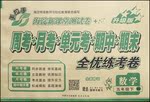题目内容
30.1 tried to fix the car myself but ______ the attempt after a couple of hours.
| A.gave in | B.gave off | C.gave up | D.gave away |
C
解析

 手拉手全优练考卷系列答案
手拉手全优练考卷系列答案Many ESL (English as a Second Language) students in the United States enroll in (注册学习) academic preparation programs and are in their late teens or early twenties. This is often a time when students are looking back on childhood in a different way. Their childhood memories and their viewpoint on those memories can be very useful for the production of wonderfully creative writing.
For this project, the students began in class by closing their eyes and trying to return to their childhood years in order to bring early memories to their mind. After imagining for a few minutes, they began to tell each other what they remembered about those years and tried to describe a particular incident that stood out in their memories.
That evening they wrote in their journals about the incident, embellishing (润饰) the story as much as possible. The next day, they read the story to a different partner and got feedback (反馈意见). The partner’s job was to: ask more questions to bring back the writer’s memory; help the writer make sure that past tense verbs were used correctly, focusing on the difference between those things that were still true and needed present tense and those things that belonged specifically to the past. Two days later, students made necessary changes or additions and turned in a typed copy of their story. I then made my own comments about their work and asked them to revise their work. The third draft (稿子) produced some very good work.
【小题1】The author’s purpose of writing this passage is to _____.
| A.show readers the difficulty he had in his work |
| B.explain his idea of English learning |
| C.show readers how ESL students live and study |
| D. tell readers how he taught his ESL students to write |
| A.What they saw around them. |
| B.Their predictions for the future. |
| C.Their childhood memories. |
| D.Their opinions of the United States. |
a. share their writing with their classmates
b. exchange their memories
c. write their stories
d. ask for others’ feedback
e. make some changes to their compositions and have them typed
f. corrected by the teacher
g. recall their stories
| A.g-b-c-a-d-e-f | B.g-c-a-d-b-f-e |
| C.e-f-b-c-a-g-d | D.d-e-f-g-a-c-b |
| A.make the memory more complete |
| B.find spelling mistakes |
| C.check the tense of the verbs |
| D.give some feedback |
Sydney Australia—Mobile phone has become a problem for middle schools. Some middle schools in Australia have banned students from carrying mobile phones during school hours.
Mobile phone use among children has become a problem for the school this year. Several children have got mobile phones as Christmas gifts, and more students want them.
Mary Bluett, an official, said mobile phone use is a distraction(分心的事)to students during school hours and it also gives teachers so much trouble in their classrooms. Teachers were also saying that sometimes students might use phone messages to cheat during exams.
She said some schools had tried to ban mobile phones. Some parents felt unhappy because they couldn’t get in touch with their children.
Many teachers said students should not have mobile phones at school, but if there was a good reason, they could leave their phones at school offices. They also said there were many reasons why the students should not have mobile phones at school: they were easy to lose and were a distraction from studies.
Many people say that they understand why parents would want their children to have phones, but they think schools should let the students know when they can use their mobile phones.
【小题1】Some middle schools in Australia have banned students from carrying mobile phones________.
| A.because they are students | B.when they are free |
| C.when they are at school | D.because they are young |
| A.the makers and sellers | B.some other strangers |
| C.their parents and friends | D.some mobile phone users |
| A.use their mobile phones | B.leave their mobile phones |
| C.help the teachers with their work | D.get in touch with their children |
| A.many teachers | B.some messages |
| C.mobile phones | D.some students |